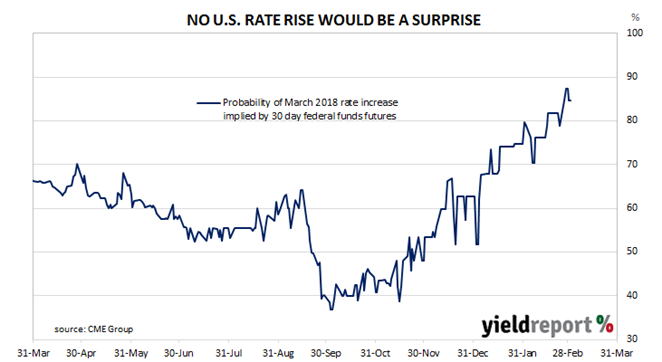For anyone who is unaware of the Federal Reserve’s preferred measure of inflation, new Federal Reserve chair Jerome Powell spelled it out during his inaugural testimony to the U.S. House Financial Services Committee. It was his first address to Congress since succeeding Janet Yellen.
His attitude and that of Janet Yellen of the importance of core private consumption expenditure (PCE) inflation was clear. “The core PCE price index, which excludes the prices of energy and food items and is a better indicator of future inflation, rose 1.5% over the same period, somewhat less than in the previous year.”
He reiterated its importance when he was discussing the Federal Open Market Committee’s (FOMC) balancing act. “In gauging the appropriate path for monetary policy over the next few years, the FOMC will continue to strike a balance between avoiding an overheated economy and bringing PCE price inflation to 2% on a sustained basis.”
However, discussions of his testimony and responses to questions afterward were centered on a couple of comments; one from the prepared statement and one during the questioning session which followed.
The first was his reference to a mix of loose fiscal (government taxation and spending) policies and the current state of monetary policy, as overseen by the U.S. Fed. “In particular, fiscal policy has become more stimulative and foreign demand for U.S. exports is on a firmer trajectory. Despite the recent volatility, financial conditions remain accommodative.”


